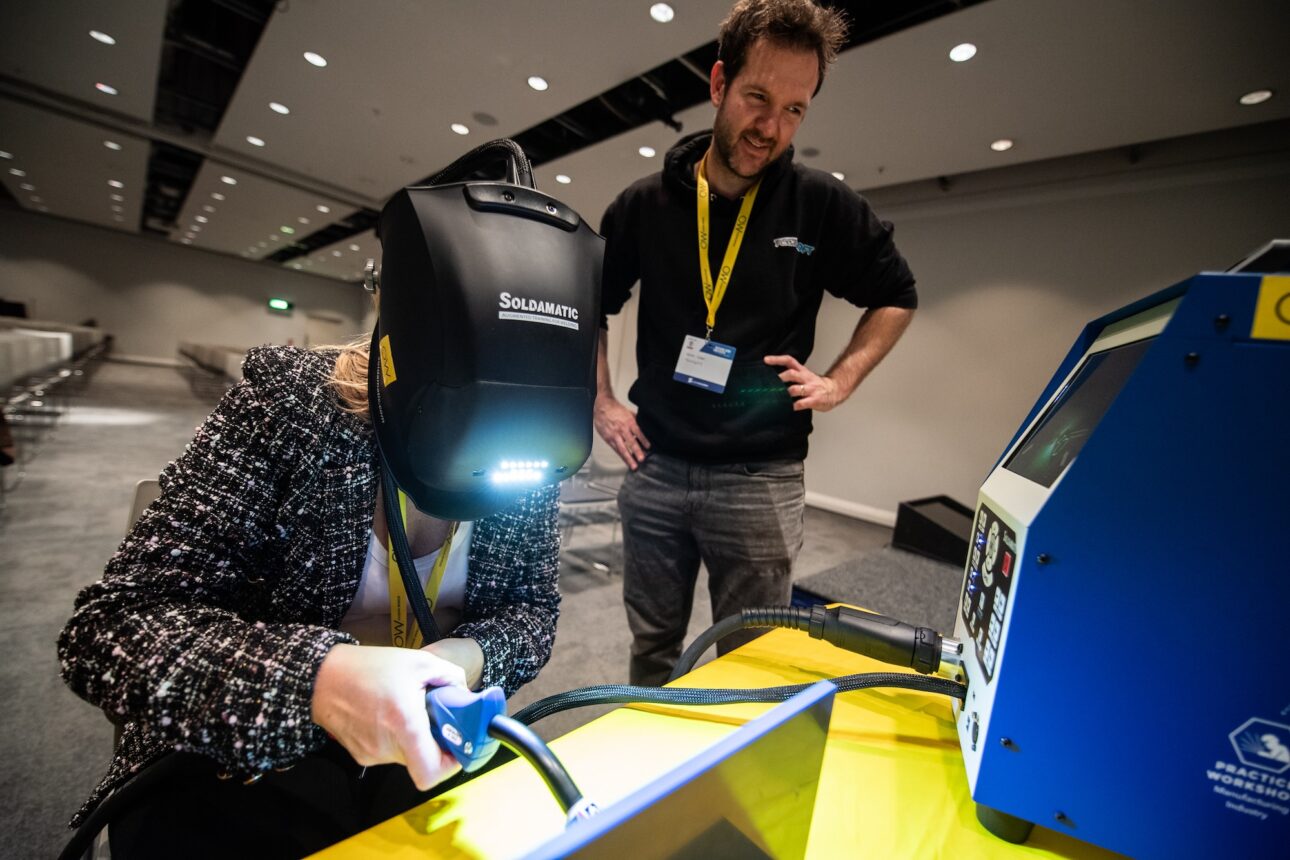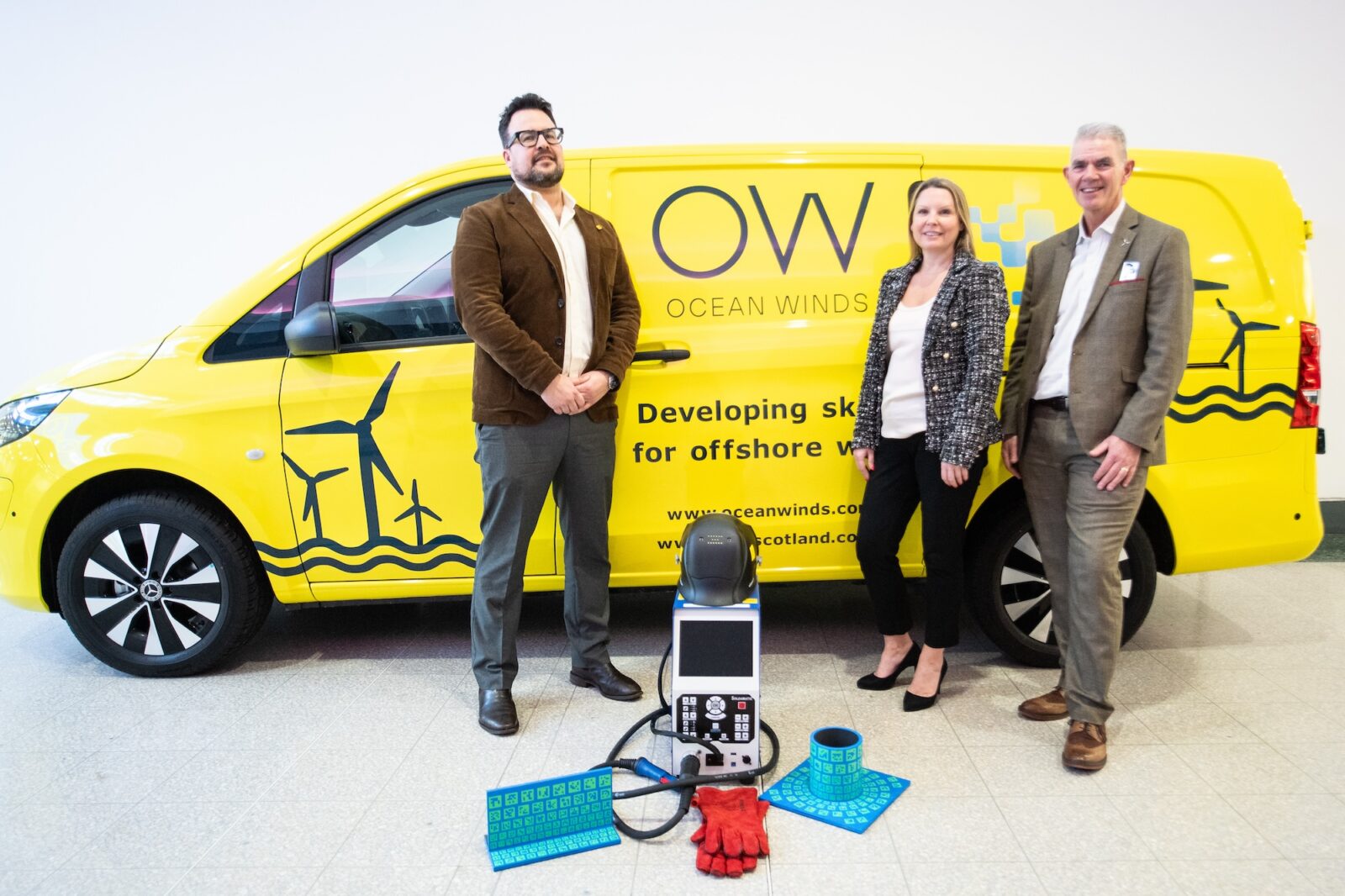Ocean Winds’ Caledonia Offshore Wind Farm has provided funding to the Energy Skills Partnership (ESP) to supply augmented reality (AR) systems that will deliver state of the art welding skills training in Scottish colleges.
The contribution forms part of broader strategic relationship between Caledonia’s developer, Ocean Winds, and ESP – the college sector agency in Scotland for energy transition, zero carbon transport, engineering, construction and STEM – to ensure colleges are aligned with the skills needs of the growing offshore wind sector.
Augmented reality is an interactive tool that uses digital technology to enhance real world experiences with computer-generated content.
Using this equipment will give students access to environments similar to those they can expect when working in the offshore industry. This will allow them to hone their welding skills and learn how to perform their role in the conditions of the field, rather than in a basic workshop setting.
The set of eight AR systems can be booked by colleges to enhance their welding courses and train-the-trainer sessions to prepare staff for using the equipment will also be offered.

Mark Baxter, Caledonia Project Director, commented: “This agreement represents Caledonia’s latest commitment to support the next generation of energy workers develop the skills needed to excel in the offshore wind industry – a sector that is growing rapidly in Scotland.
“With a portfolio of offshore wind farms based in the Moray Firth, this agreement bolsters Ocean Winds’ long-standing relationships with NESCOL Fraserburgh campus and UHI Moray College, as both campuses are based in locations that will be instrumental in the construction of Caledonia.
“We’re dedicated to continuing our wide-ranging STEM engagement with Scottish schools, colleges and universities, to help guide curriculum development and sponsor postgraduates through PhD research projects in the field.”
Jim Brown, Director, Energy Skills Partnership, added: “This funding from Caledonia presents a unique opportunity for local students to develop the skills required to work on offshore wind projects such as those being developed in their region.
“As well as equipping students with competencies they need for their future careers, this collaboration will also address recognised skills gaps within the industry, helping to develop a workforce capable of reaching net zero targets.”

